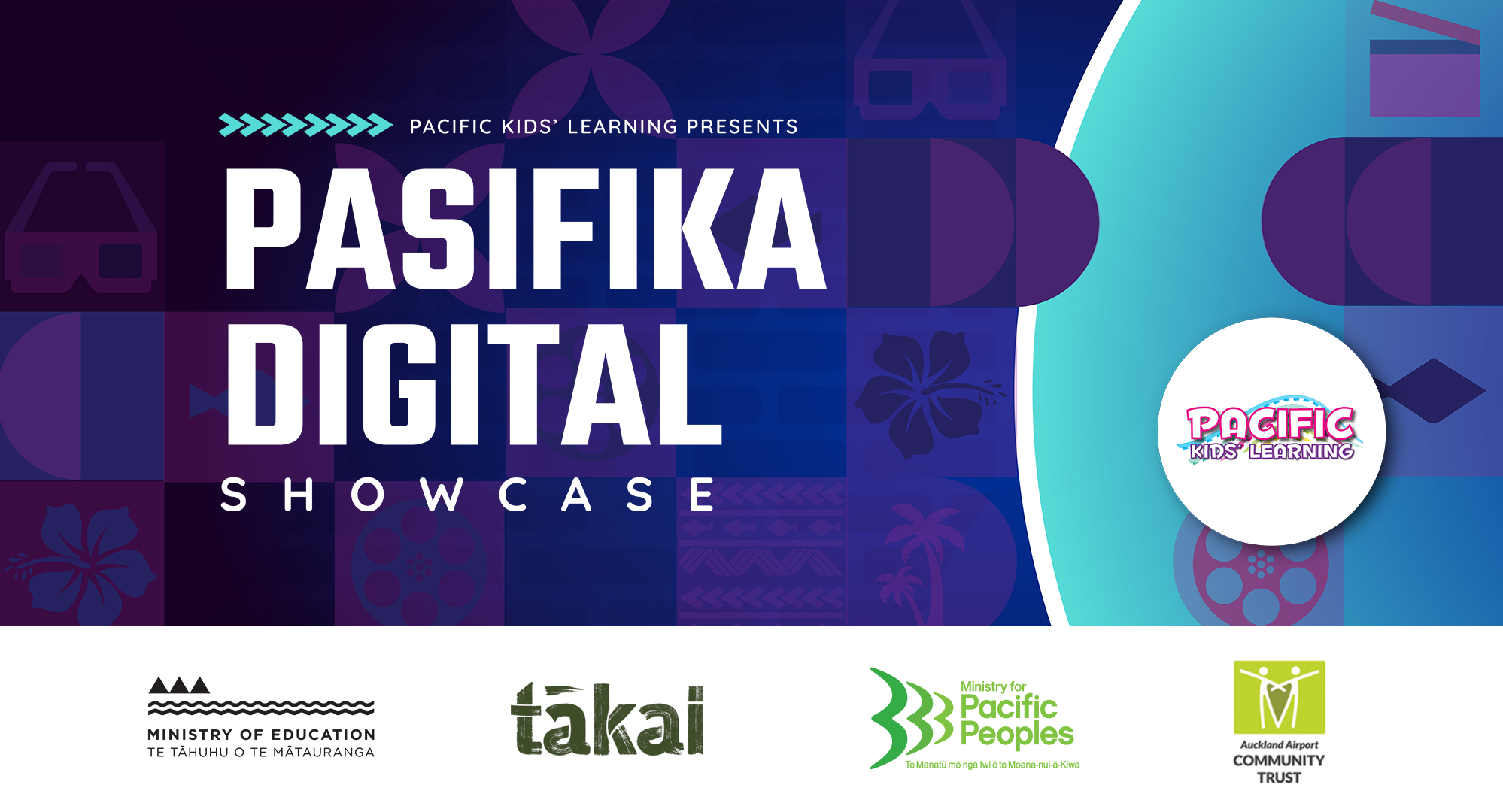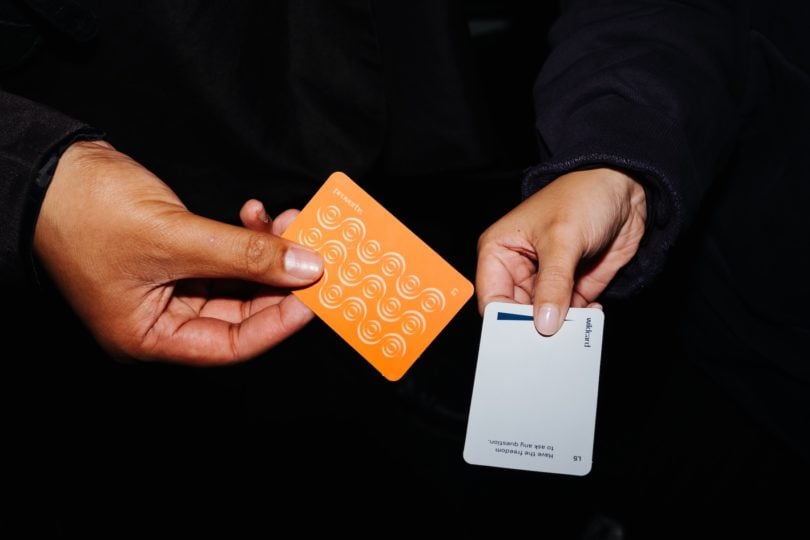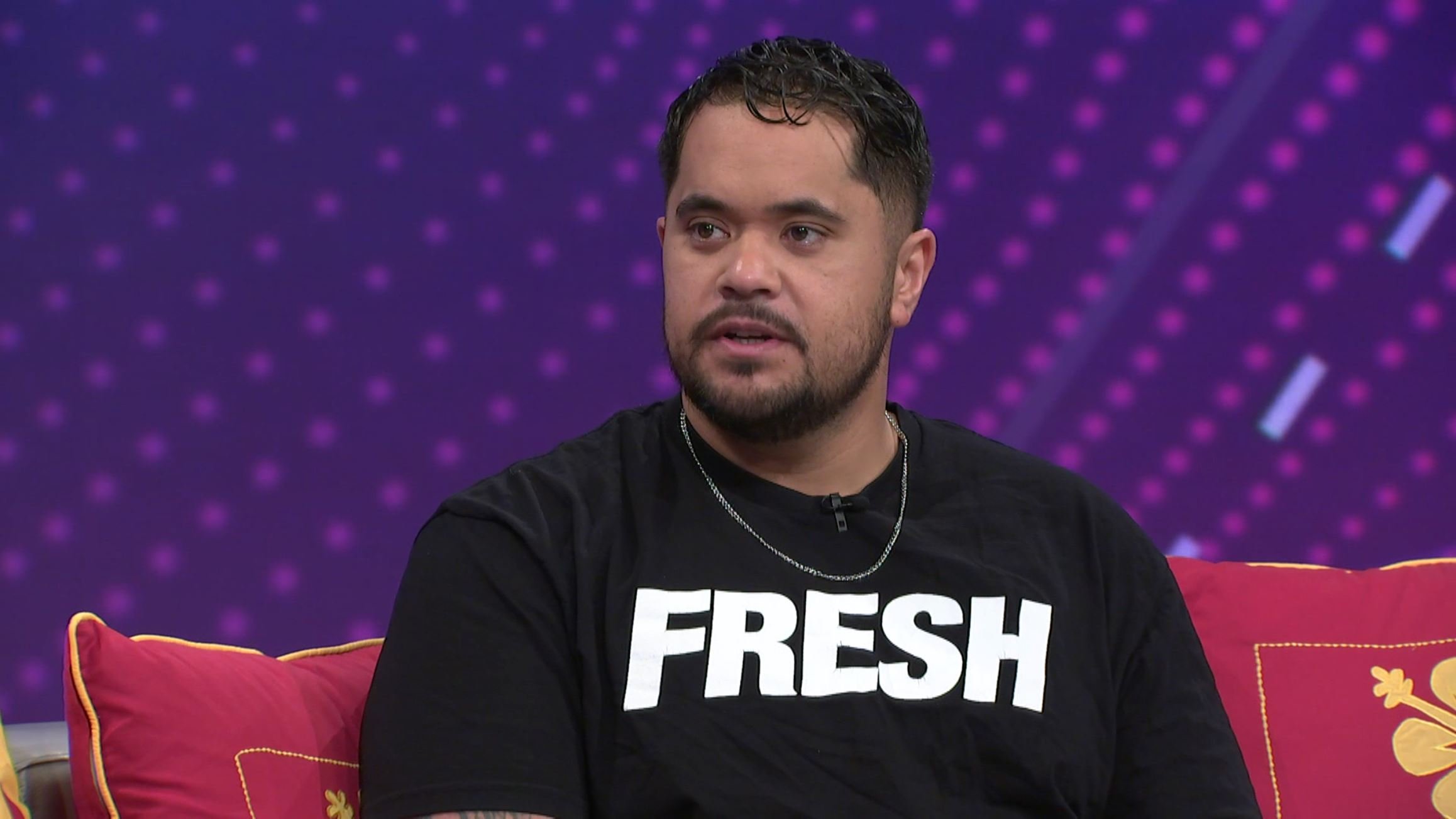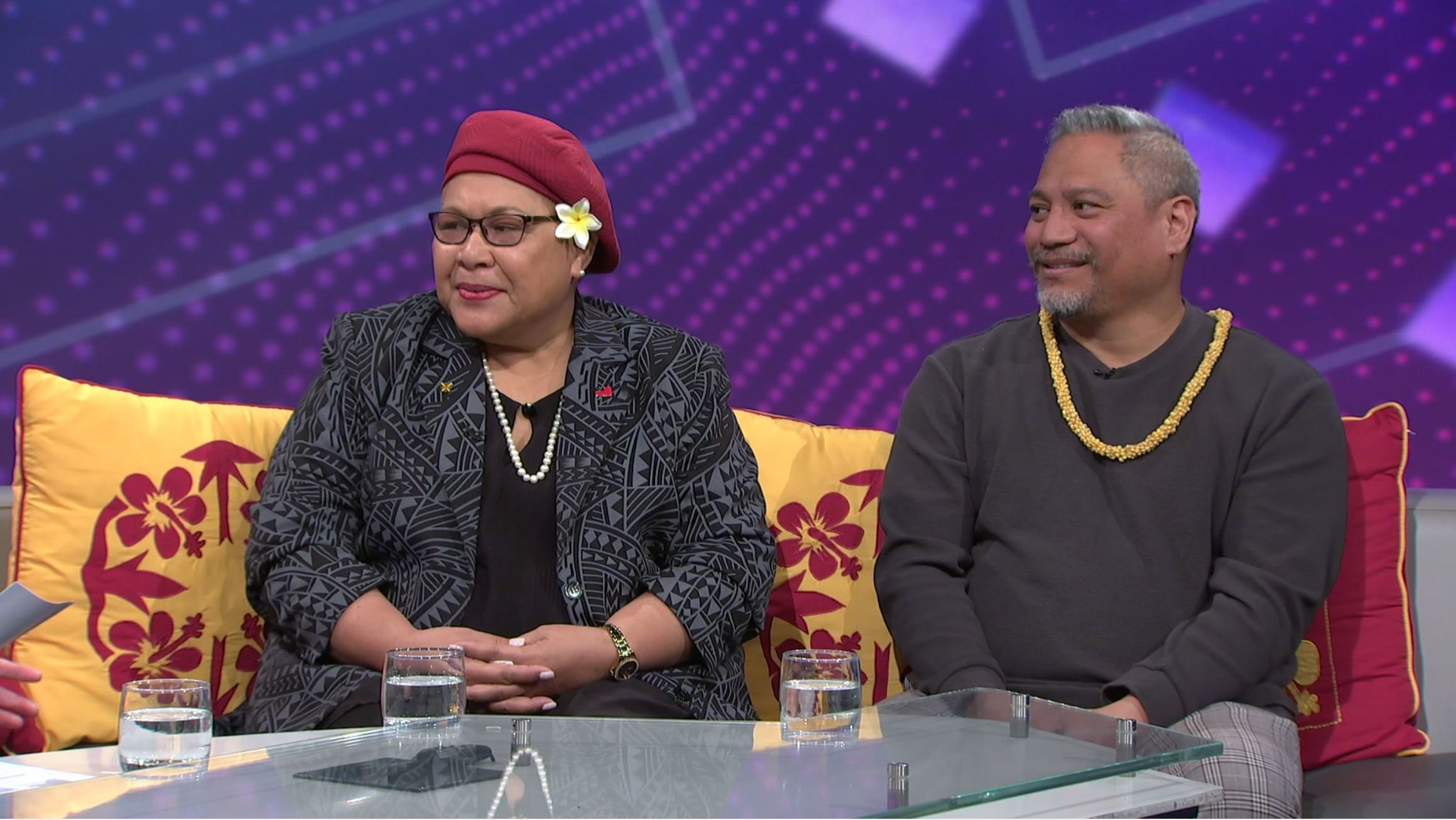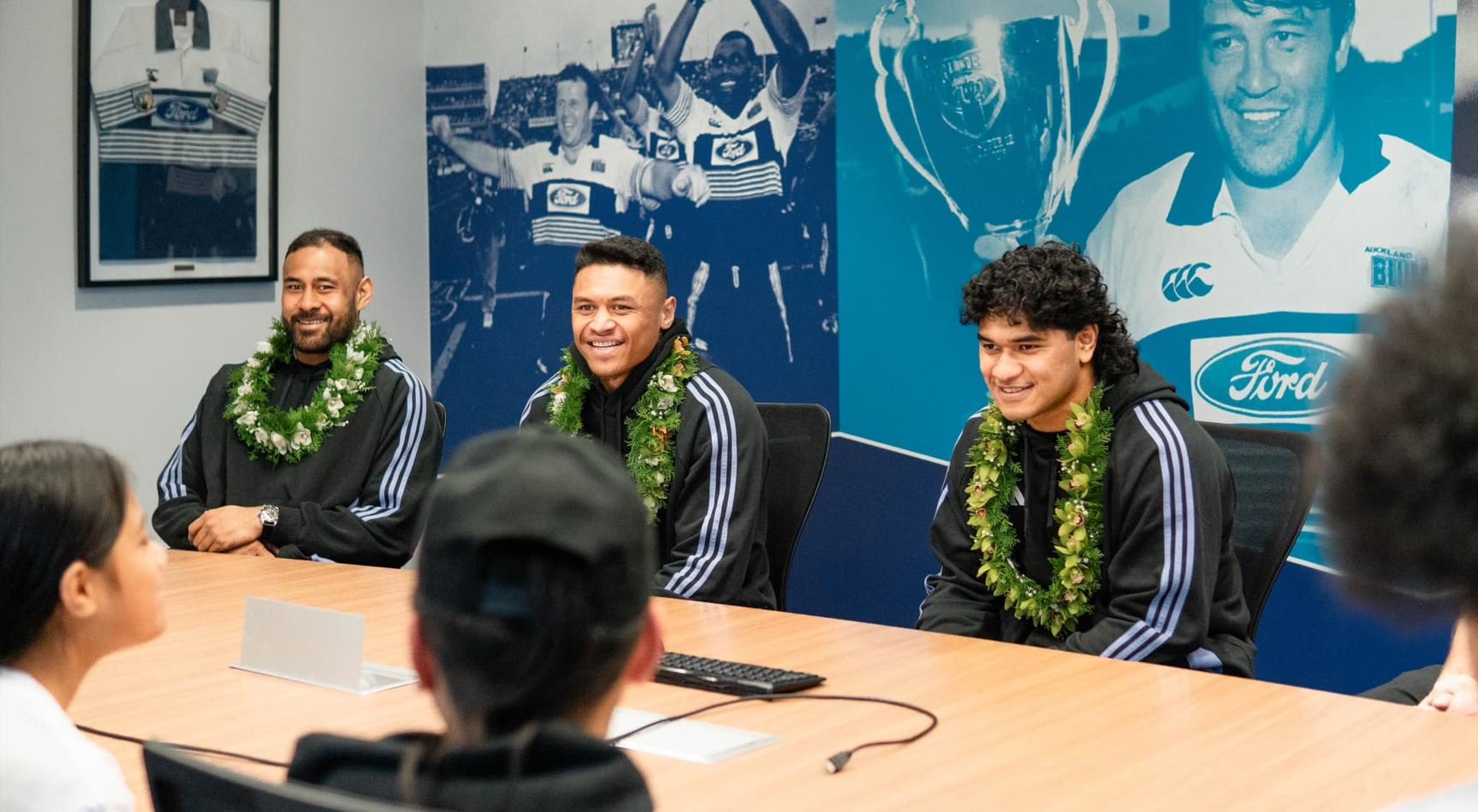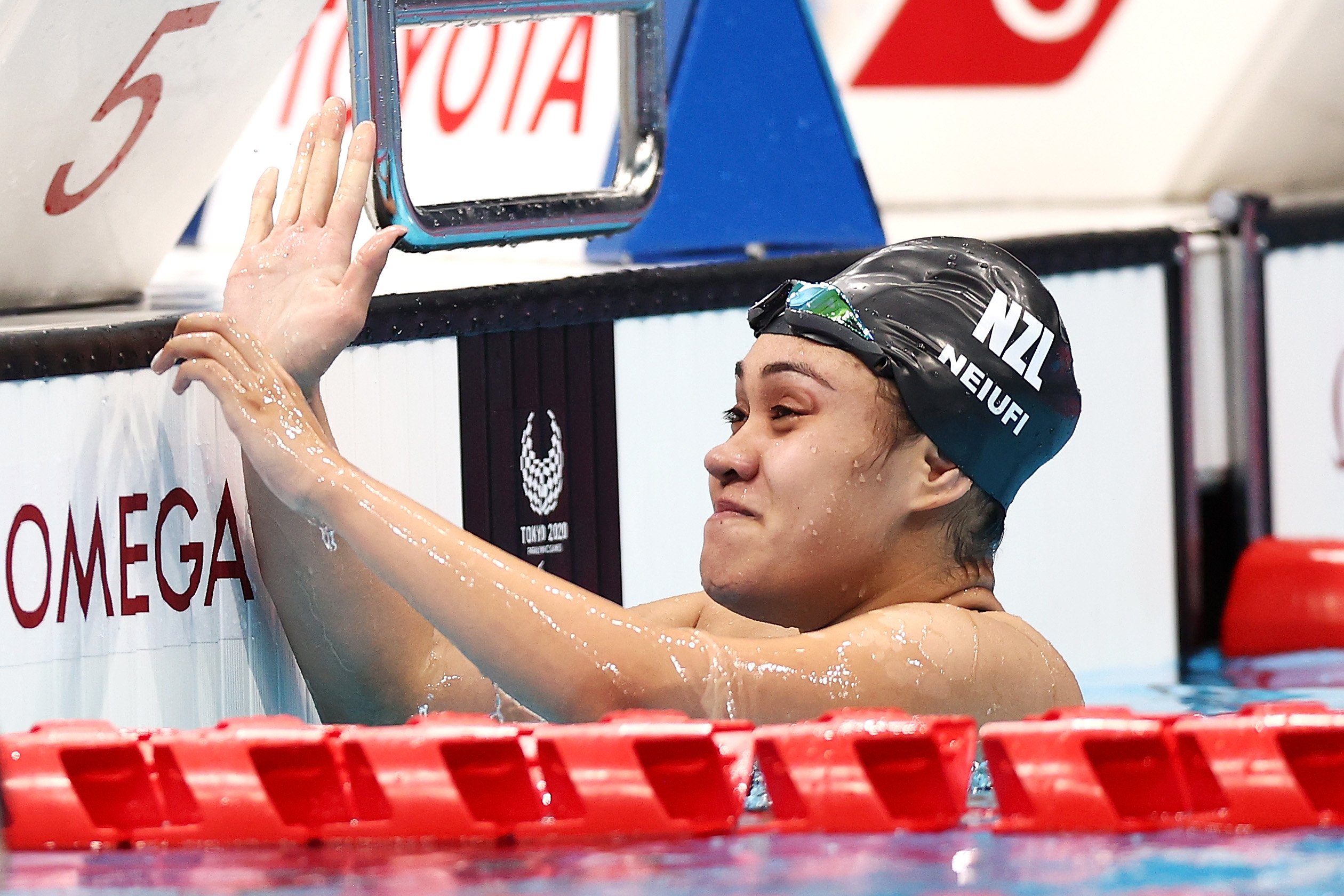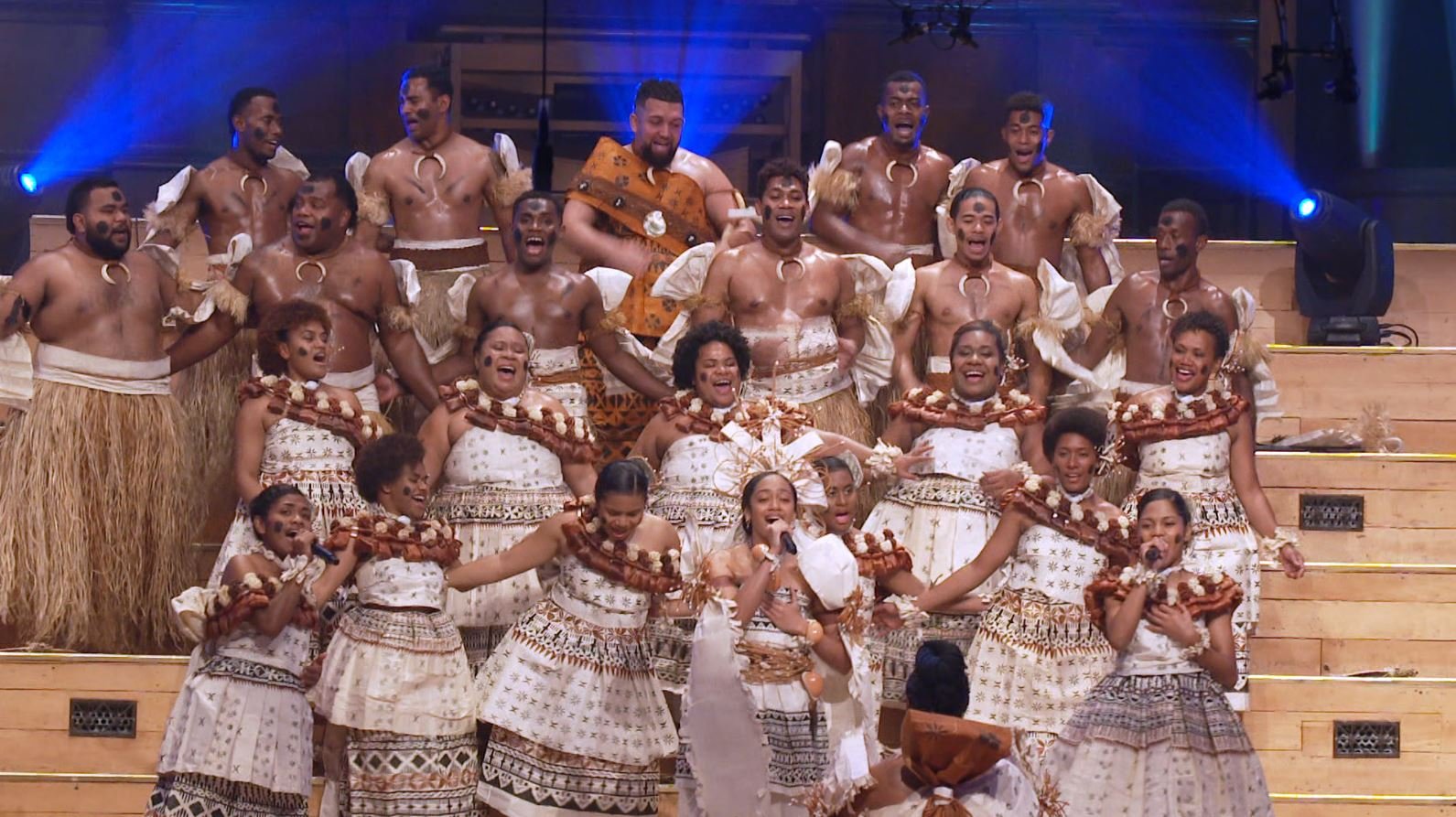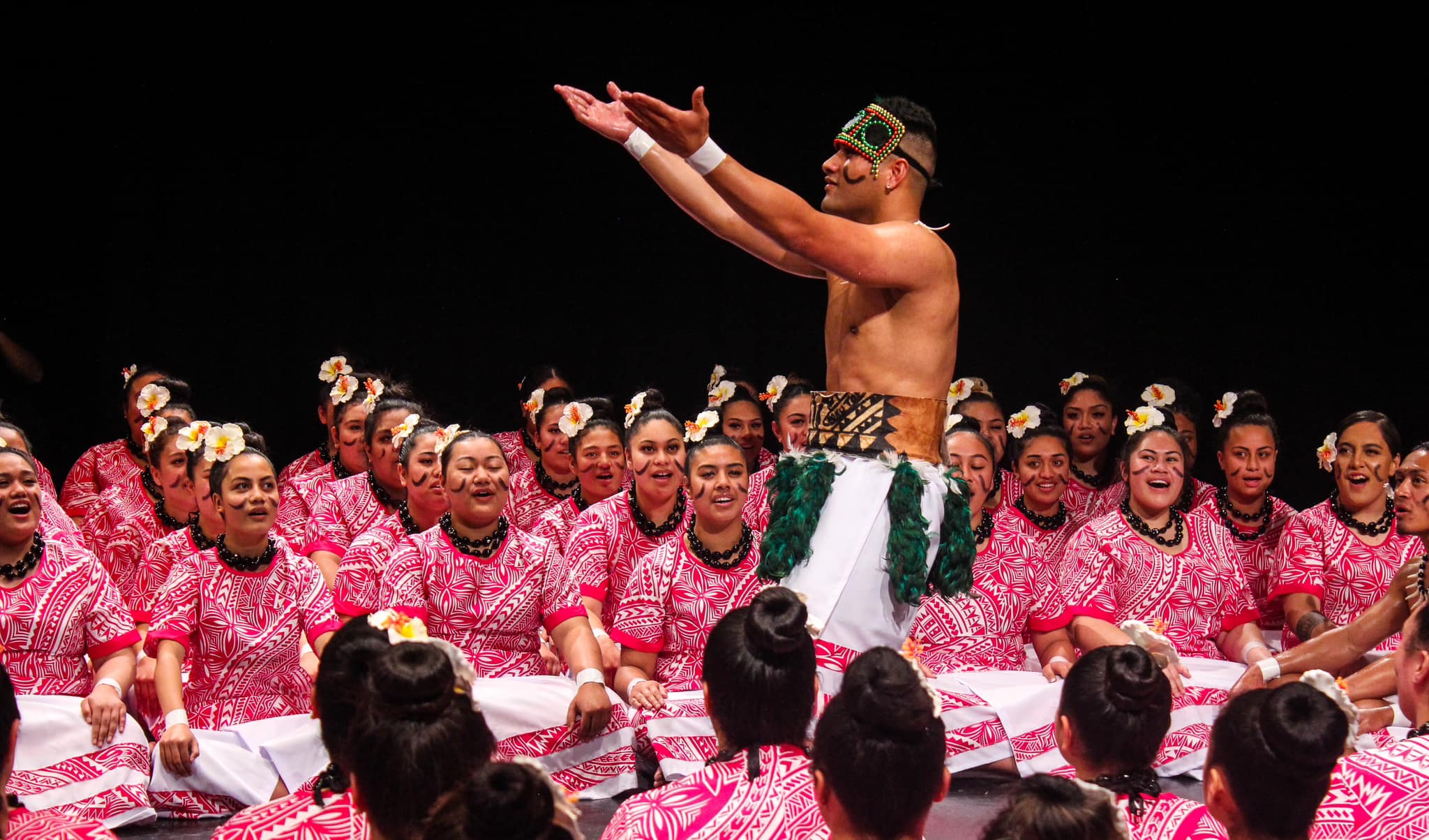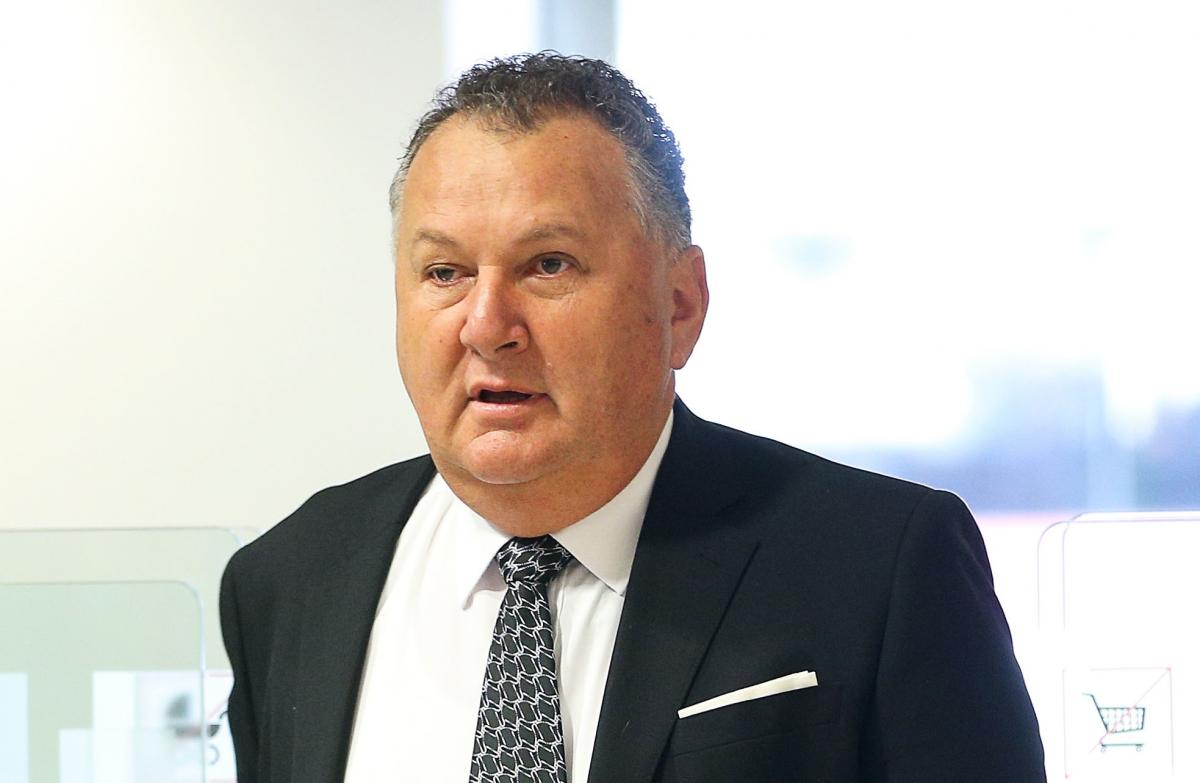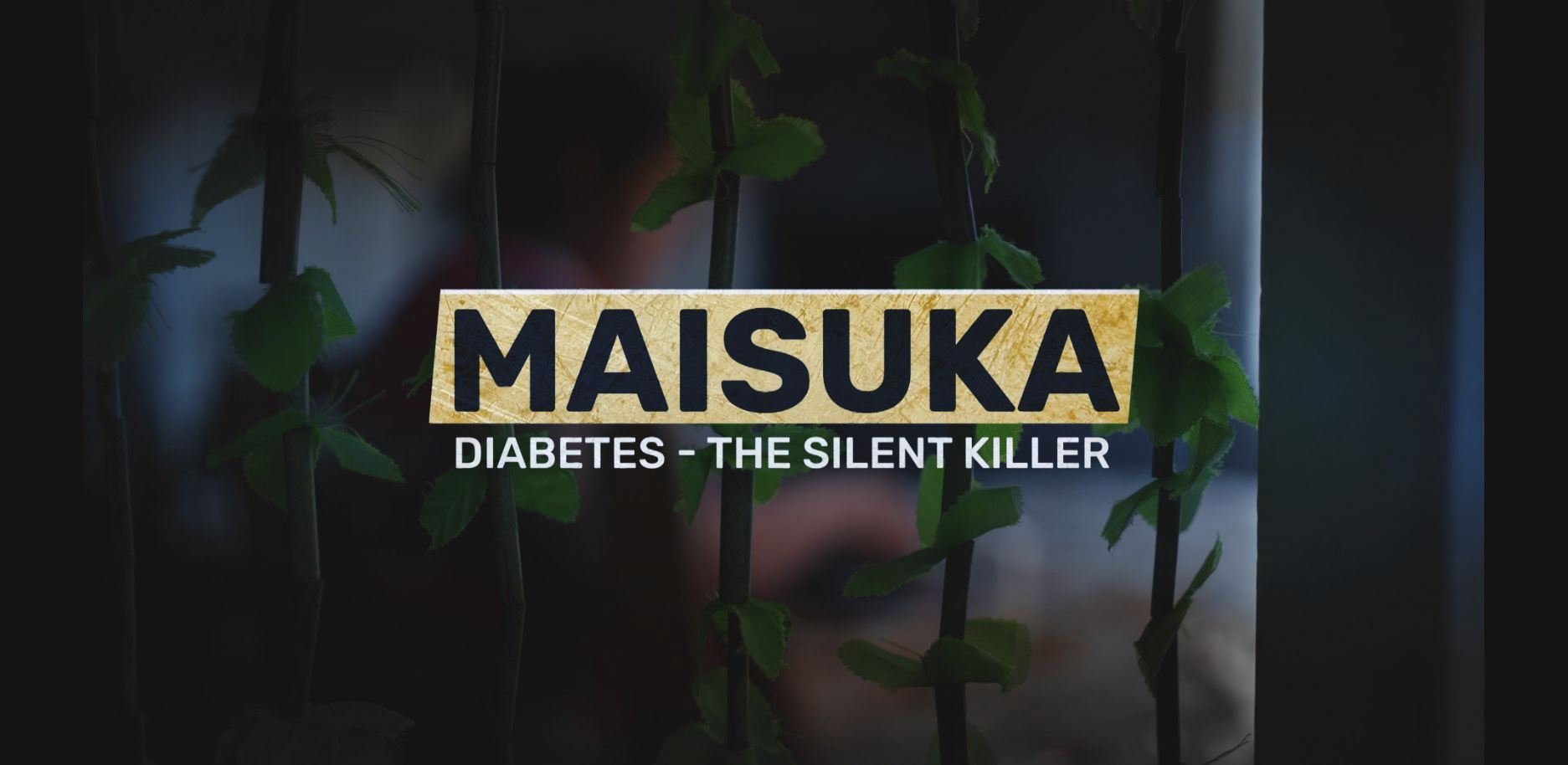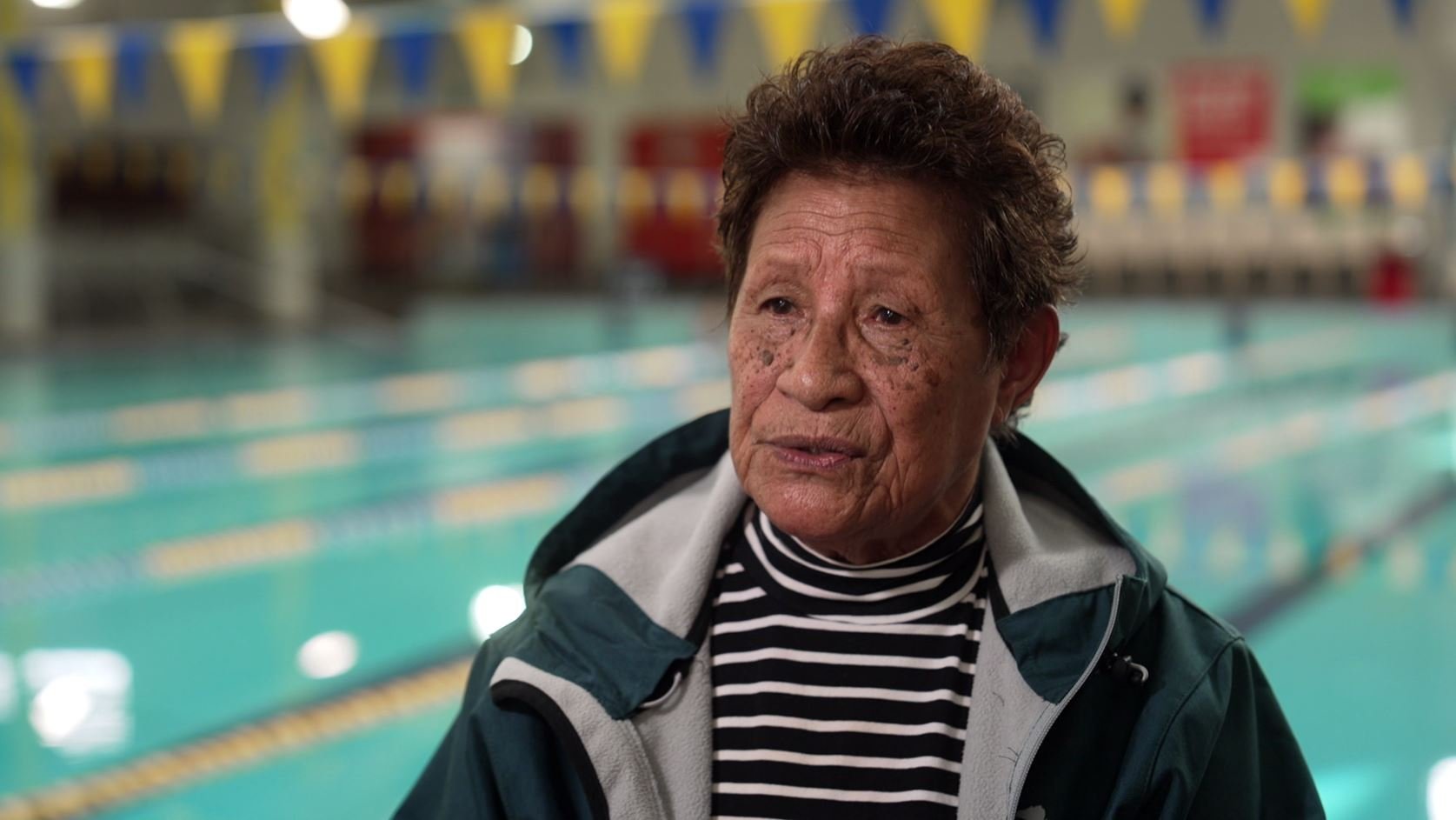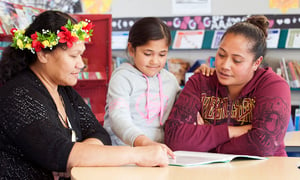Tēna tatou, ko Angel Mosese tōku ingoa. He uri ahau nō Te Rarawa (Aotearoa), nō Tufuiopa/Afega (Samoa), nō Gau (Fiji) hoki.
Greetings, my name is Angel Mosese, and I am a descendent from Te Rarawa (Aotearoa), the villages of Tufuiopa and Afega (Samoa) and the island of Gau (Fiji).
Originally from Brisbane, Angel Mosese is a te reo Māori teacher at Gladstone Primary School in Auckland. To celebrate Te Wiki o te Reo Māori, Angel and her tauira (students) are playing virtual games, quizzes, online challenges and singing waiata they’ve learned prior to lockdown.
“My students love giving te reo a go, and I am so proud of the te reo Māori journey our school is on,” she says.
In her primary years, Angel’s reo was limited to basic Māori phrases and names of objects. It was only when she attended an all-female Māori boarding school at 13 that her fluidity in the language started to blossom.
Angel’s commitment to learning her mother tongue saw her achieve first place in her year level in te reo Māori.
“I put it down firstly to my awesome te reo Māori kaiako, Whaea Terri Totorewa and Whaea Parehiwa Totorewa, but also my surroundings,” she says.
“Many of my sisters from kura were raised in the reo, so I heard it all the time and was never scared to ask lots of questions.”
After graduating from high school, Angel obtained great knowledge and confidence in speaking the reo. She continued to improve on her Māori fluency by enrolling into Kura Pō classes, which helped encourage her immediate whānau members with their own language journeys.
“It was extremely important for me to learn the language of my forefathers,” Angel says.
“For my whānau, te reo Māori only skipped one generation – my mother’s generation. However, for some whānau, it has skipped multiple generations.”
“Therefore, I felt a sense of responsibility to my grandparents and to our future generations to learn and ensure it continues through me and my children.”
Although Angel can uphold a full conversation in Māori now, she is still driven to learn more to improve her fluency.
“My journey of learning continues; you never really stop learning. It’s like English; there aren’t many people who know every single word in the English dictionary, right?”
What Angel found challenging about learning te reo was the lack of practise she had. Angel says practising te reo Māori is effective when there is another person to kōrero Māori with.
“I didn’t always have someone to ‘practise’ with, so once I became a mother, I made sure that my daughter spoke te reo Māori. That way, I would always have someone to whakawhiti kōrero (exchange words) with,” she says.
As words of encouragement to those who are on their reo journey, Angel shares the Māori whakatauiki (proverb) of ‘tūwhitia te hopo, mairangatia te angitū!’ which translates to ‘feel the fear and do it anyway!’
“If you want to learn the language, don’t let the fear stop you,” she says.
“It’s not going to be easy, and there will always be excuses as to why you can’t commit or why you don’t have the time, but if the passion is there, it will be enjoyable and beneficial.”
